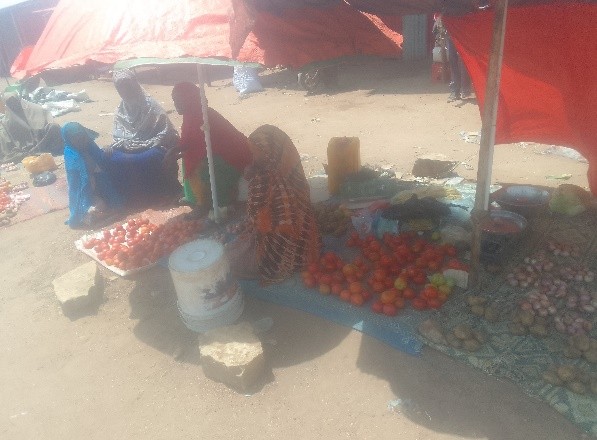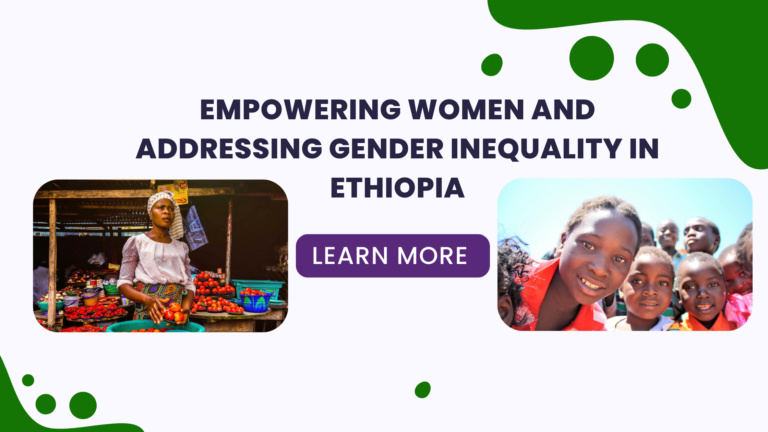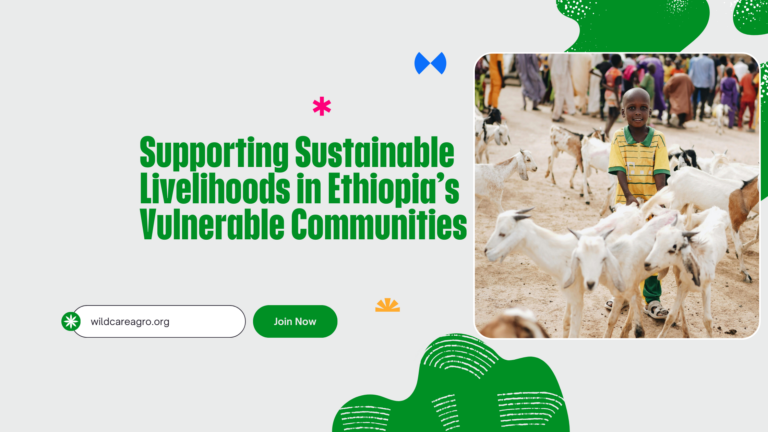support MOST vulneribilty womens

About The Project/Proposal
This project is self-funded which aim supporting vulnerable women households in Dudehidi kebele (Village) to strengthen livelihood initiative through providing cash for petty trade.
Wild Care Agro Action Charitable Organization ( WCAA organization) as a not-for-profit organization established to help people in need by proving humanitarian response for vulnerable groups, prevention of GBV, livelihood and protection child service, planned to implement small project “improving livelihood for vulnerable poor women households”. The organization’s board contributed 330,000 Ethiopian Birr to support for 20 women households so as to strengthen their existing petty trade specifically, fruits sellers. It has three Phases, each covers 5500 ETB cash for individual women household. The selection of this fruit type is accorded that the prime demand of wider community consumers at all times is Tomato. This type will probably result significant opportunity for the women households.
Period and Location
This is a 6 Months project, from 2 August 2024 and will end Jan 28 2025. The project will support 20 targeted women households, and will offer 5500 Birr/women in every of the three phases planned. The project intervention location is Dudehidi kebele of Jijiga City.
Objectives
The main objective of this project is to strengthen livelihood income for vulnerable women households to support petty trade.
Background
Recurrent drought and conflict happen in Somali region has caused loss of livestock and agriculture which has severely affected on pastoral and agro-pastoral communities’ well-being. Conflict and natural displacement induced IDPs has increased over the last five years in search of living and safety. Thus, it is obvious that concurrent issues such as inflation, unemployment, and rural to urban migration leading to resource competition are overarching challenges of life in Jijiga city.
Even though crises have impacted the entire life of the population, IDPs and host community are among the most affected groups, specifically of the poor, and vulnerable households are at risk of food insecurity. According to the assessment, the target groups were 40 women households who’s their livelihood depends on petty trade mainly on fruits, butcher and milk.
This proposal address problems of livelihood activities for selected women households, and doesn’t reflect the intervention of the Three (3) selected business types. Therefore, 20 women households selected to support through providing direct cash support and have been given awareness training.
To address the needs of poor and vulnerable households whose existing petty trade is affected by crises? The focus was existing petty trade, the capital in ETB, average of daily income in ETB. Based on identified challenges, this proposal discusses just a necessary support or solutions to overcome challenges faced by women households. In addition to the environmental restraints, there are problems affected by vulnerable women. Such factors include exposure to sun light causes to loss of quality of fruits, Devaluation of Birr, lack of relevant support or interventions, unbalance of family needs and capital are all challenges hindering the livelihoods and entire living conditions of vulnerable people in the town.
The below table shows a summary of information (capital, daily income average by women households (vegetable sellers).
| Vegetable | Capital (ETB) | Income/day (ETB) | Challenges |
| Onion 50kg | 3850 | 125 | Lack of parking |
| Tomato 50 kg | 4400 | 125 | Exposure to sun |
| Potato 50 kg | 4950 | 136 | Devaluation of Birr |
| Lack of capital | |||
Petty trade: Vegetable Safiya Omar, Vegetable seller, Dudehidi town, Jijiga

According to the data, the vulnerable households met critical condition since they have been struggling for the survival. The maximum income earning per day is 120 Ethiopian Birr which is relatively less than cost of basic necessity as told by Safia Omar in her interview. As a result, devaluation of Ethiopian Birr usually undermines our capital and this may result loss of purchasing power She added.
To support the poor and vulnerable household women in earning sustainable livelihood income, cash support for capital should be given to increase their sustainable income, providing umbrellas will reduce loss of quality of vegetable and it will also prevent health problems caused by sun’s heat. Follow ups and advisory service will be provided to sustain their engagement.
Expected Outcomes
- Improved livelihood for family wellbeing,
- Reduced vulnerability for women and young females,
- Better availability of basic necessity for the poor families;
- Well oriented women households will receive advisory support and follow ups,
- Confidence of women beneficiaries will be enhanced; seeking innovative ideas and business skills;
- Quality of fruit is protected, and reduced loss;
- Strengthened capital will increase purchasing power;
- Increased opportunity to meeting family meals;
Intervention Activities
The main activities of this project will be:
- Provide 165,00Birr cash for each individual of the 20 targeted women household to sustain petty trade (fruits);
- Support women beneficiaries in orientation training on business skills;
- Follow up the engagement of women in income generating activity;
- Collect feed backs and provide supportive services;
- Support through providing an Umbrellas (if available)
- Coordination, and strengthen communication and networking with NGOs, Government and kebele administration.
- Seeking solutions for the availability of land for selling vegetables;



